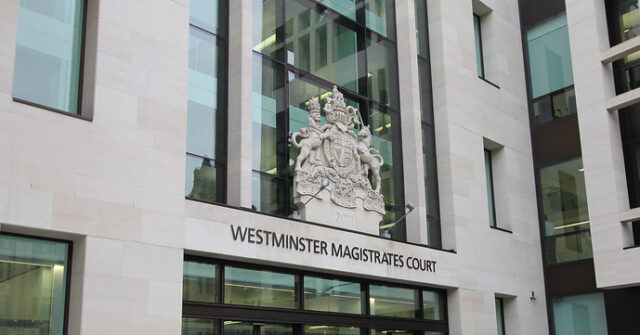On July 29, a tragic stabbing incident occurred during a Taylor Swift-themed dance class in Southport, England. Axel Rudakubana, an 18-year-old, stands charged with the murder of three young girls—Alice Dasilva Aguiar, 9, Elsie Dot Stancombe, 7, and Bebe King, 6—and the wounding of ten others. The attack happened at Hart Space, a community center that facilitated various activities such as pregnancy workshops and women’s boot camps. In a recent court appearance via video link from Belmarsh prison, Rudakubana chose not to confirm his name or engage in dialogue, keeping silent throughout the hearing. His defense attorney, Stan Reiz, stated that Rudakubana has opted to withhold his comments for personal reasons.
In addition to the original murder charges, Rudakubana is now facing more serious allegations. Recently, he was charged with the production of ricin, a potent biological toxin derived from the castor bean plant that has no known antidote. This new charge stems from the discovery of the toxin at his home, along with an al-Qaeda training manual titled “Military Studies in the Jihad Against the Tyrants,” found during a police search. Authorities have clarified that the stabbings are not classified as a terrorist incident, as the motive behind Rudakubana’s actions remains unclear. Police emphasize that the investigation into the events surrounding that day continues.
The brutal stabbings have triggered a significant backlash from right-wing groups, stoking anger toward immigrants and Muslims, particularly after false social media reports suggested that Rudakubana, who was unnamed at the time, was an asylum seeker arriving in the UK by boat. Following a community vigil that paid tribute to the victims, an angry mob attacked a local mosque, hurling bricks and beer bottles at law enforcement. This violence escalated into widespread rioting that lasted for a week across England and Northern Ireland, resulting in over 1,200 arrests and substantial public disorder, with hundreds subsequently jailed.
Rudakubana, whose background has garnered interest, was born in Wales to Rwandan parents and was reportedly raised in a Christian family. As the legal process unfolds, the public and media remain invested in understanding the motivations behind his actions. Recently, the case has been ordered to move to Liverpool Crown Court, where prosecutors aim to consolidate the new charges of poison production and possession of terror-related material with the initial murder and attempted murder counts. A forthcoming hearing in Liverpool is scheduled for November 13, where further developments in the case may be revealed.
The impact of this event on the Southport community has been profound, with the loss of young lives and the trauma inflicted on those present at the dance class. Families and friends of the victims have been mourning, while also grappling with the unsettling reality that a tragic act of violence disrupted what should have been a joyful summer vacation activity. The incident has raised questions about safety in public spaces and the susceptibility of communities to violent acts, especially involving young children.
As the legal proceedings progress, the dual narrative of justice for the victims and the broader societal implications of the attacks continues to unfold. The motive behind Rudakubana’s actions may hold significant insights into underlying issues within the community and the potential for radicalization. These details will likely emerge as the court hearings take place, influencing public perceptions and future discussions around crime, safety, and communal resilience in the face of tragedy.

